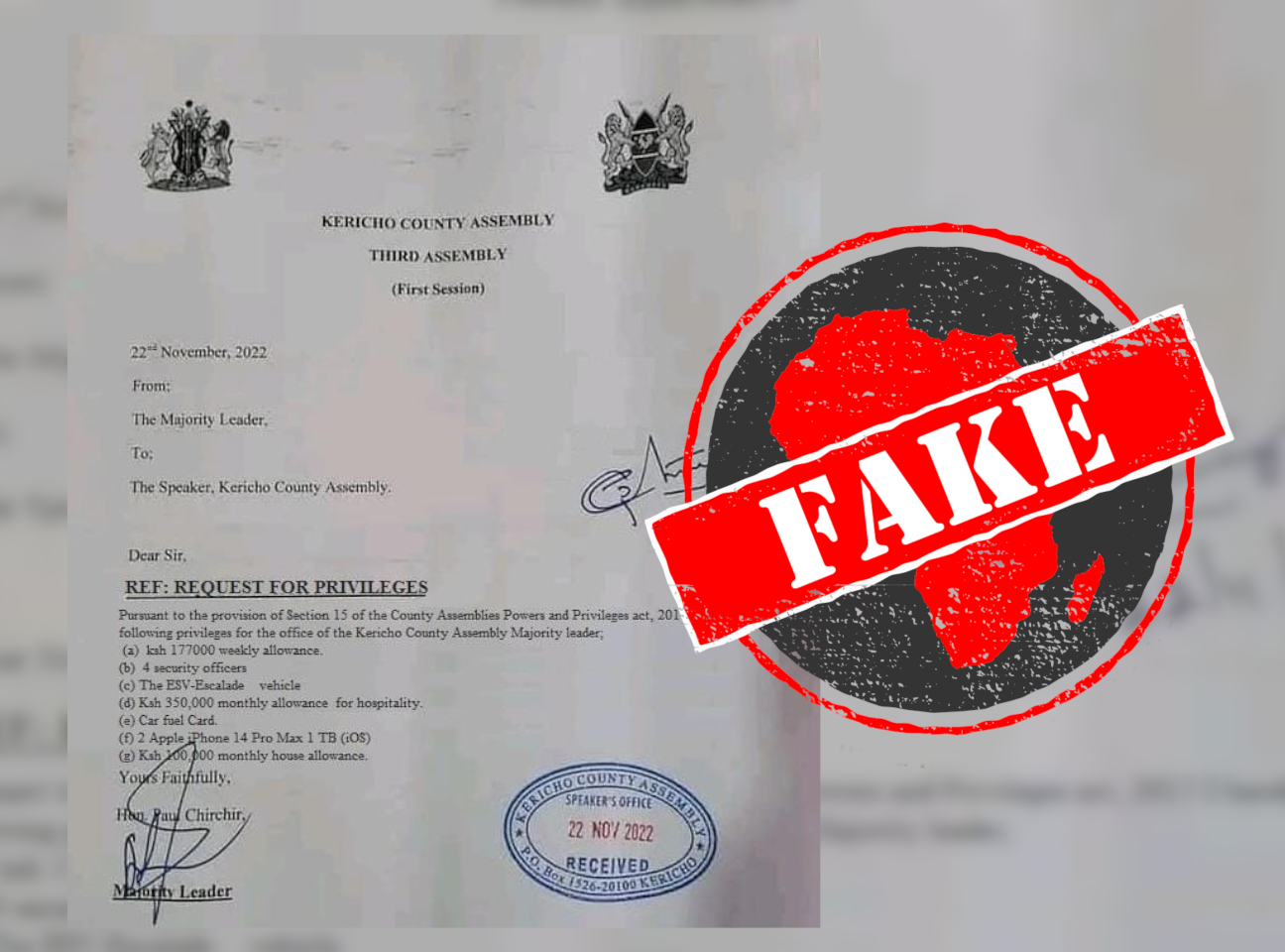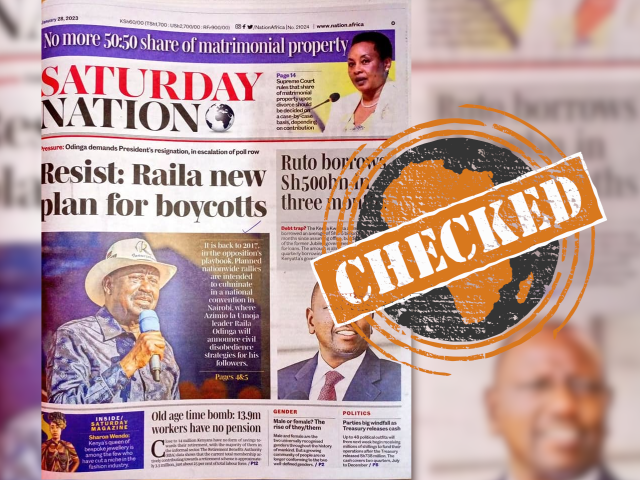IN SHORT: Despite leadership wrangles in the Kericho county government, a letter demanding expensive “privileges”, said to be from one of those involved, has been fabricated.
“REQUEST FOR PRIVILEGES,” reads the subject line on what looks like an internal memo from Kericho’s county assembly, circulating on Facebook.
Kericho, one of Kenya’s 47 counties, is about 250 kilometres from the capital city of Nairobi.
The document, addressed to the speaker, is dated 22 November 2022. It says: “I hereby request the following privileges for the office of the Kericho County Assembly Majority Leader.”
It then lists items such as “an Escalade stretch vehicle, 4 security officers, KSh 177,000 weekly allowance, car fuel card, 2 iPhone 14 pro max 14TB and a KSh 100,000 monthly house allowance”.
The document appears to be signed by member of county assembly (MCA) Paul Chirchir, and states that he is the majority leader of the Kericho county assembly.
It has been posted here, here, here, here, here, here, here, here, here, here and here.
The Kericho county assembly has been rife with leadership wrangles as a result of two MCAs, Paul Chirchir and Vincent Tumbamei Korir, both claiming to be the majority leader.
The ruling party has so far backed Korir in the tussle, even as Chirchir claims the support of local politicians.
So, is this really an internal memo by Chirchir requesting lavish privileges?

‘Beware of fake malicious documents’
On 25 November, the Kericho county assembly posted the memo on their official Twitter and Facebook pages, stamped “fake” in red.
“Beware of fake, malicious documents on social media and treat them as such. This document does not originate from us,” the post reads.
Republish our content for free
For publishers: what to do if your post is rated false
A fact-checker has rated your Facebook or Instagram post as “false”, “altered”, “partly false” or “missing context”. This could have serious consequences. What do you do?
Click on our guide for the steps you should follow.
Publishers guideAfrica Check teams up with Facebook
Africa Check is a partner in Meta's third-party fact-checking programme to help stop the spread of false information on social media.
The content we rate as “false” will be downgraded on Facebook and Instagram. This means fewer people will see it.
You can also help identify false information on Facebook. This guide explains how.



Add new comment